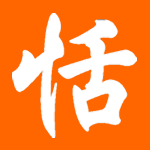to: tiangotlost@gmail.com
date: Sat, Dec 4, 2010 at 3:34 AM
subject: Restaurant sign
Hi,
There's a sushi restaurant in Stockholm with this sign which is obviously not japanese, but even in chinese it doesn't *appear* to say anything coherent. Care to shed any light on it, despite it not being a tattoo?
- Karl

定価 = listing price
中 = within
低 = lower
冬季 = winter
大人 = adult
千円 = thousand yen
村 = village
高 = higher
内線 = inner line
年賀 = new year's greeting
中 = within
低 = lower
冬季 = winter
大人 = adult
千円 = thousand yen
村 = village
高 = higher
内線 = inner line
年賀 = new year's greeting


With the characters sticking to each other when they should be separate is a clue that the person who put up the sign or the person who requested the design ISN'T familiar with or 99% chance that they don't know Asian languages which uses Chinese characters. They are trying to taking advantage and targeting Asian customers but due to ignorance it comes out as "crap". Even if the use of correct Kanji has no guarantee that you'll get more customers. If I happen to see this place, the most I'd do is go in there ONLY ONE TIME and NO MORE. Even if the food is good. It's bad marketing.
ReplyDeleteWow, that was a load of bullshit :D
ReplyDelete"Adult, thousand yen, village" sounds like a weird combo to me..
Basically it's just a random collection of characters that make no sense.
ReplyDeleteYes, this seems to make no sense at all. By the way, in Japanese, 内線 means "extension," the number you dial after calling a main number on the telephone.
ReplyDeleteGoogle tells me the restaurant might be in Malmö, not Stockholm.
ReplyDeleteAlan: I took the picture, and it's definitely in Stockholm. The address is Torsgatan 7b. The sign isn't on Google Street View but you can see the same door/façade. My URL is the google link
ReplyDelete"gao", the character translated as "higher", could also simply mean "tall" or "high".
ReplyDeleteInteresting - "extension" (of a number) in Chinese isn't 內線 at all. At least not in Taiwan.
"Interesting - "extension" (of a number) in Chinese isn't 內線 at all. At least not in Taiwan."
ReplyDeleteNot in Mandarin which is spoken in Taiwan & Mainland China. Could be in other Chinese dialects.
This is not targeted to Asians, but for the local customers who likes an authentic look. It don't look too much authentic though. But again, the people on this site have at least trained eyes.
ReplyDelete"But again, the people on this site have at least trained eyes.": Hello. Most of the people, including Tian, who commented here are either Asian, have learned Asian languages or are translators, etc... so we know what we're saying. Unlike other sites, where the webmaster, administrators and members are non-Asians who have learned some Asian languages here and there and then mislead people by saying their "Sinologists" by telling you crap and when you try to correct them, they give you a bad rating on the site, which totally sucks.
ReplyDelete@Anonymous: That's why I like about here. Of course we all would have trained eye, why did you expect? The most ignorant people hanging around here have a "trained eye" and the rest are qualified Asian language(s) speakers, many being native, including the site owner himself. Sorry if I misinterpreted, but I don't think there's a reason to get mad at me, because I said that.
ReplyDelete高 in Japanese is generally translated as "expensive", the word being "takai". But it's very neat to see that so many of the characters above translate to about the same thing in Japanese. Winter is only the first character, however, but "big person" would be the same in Japanese. Same with "village". I'm so pleased my friend linked me this blog, this is neat. :)
ReplyDeleteI think it's funny to think of it as an ad for prostitution. ;)
ReplyDeletelisting price within lower winter adult thousand yen village higher inner line new year's greeting
means:
Prices listed within! Cold down there? For adults only: we have a village full of options from one thousand yen and up. Give your "inner line" a real "new year's greeting."
haha ;) I can easily say that in Sweden there's not so many east Asian people, and much less of Japanese people so these places are usually run by chinese people or even thai and the goal customers are usually swedes who can't read anything Chinese/Japanese. So basically the characters are there just for decoration purpose. haha ;) (Swede here speaking)
ReplyDelete